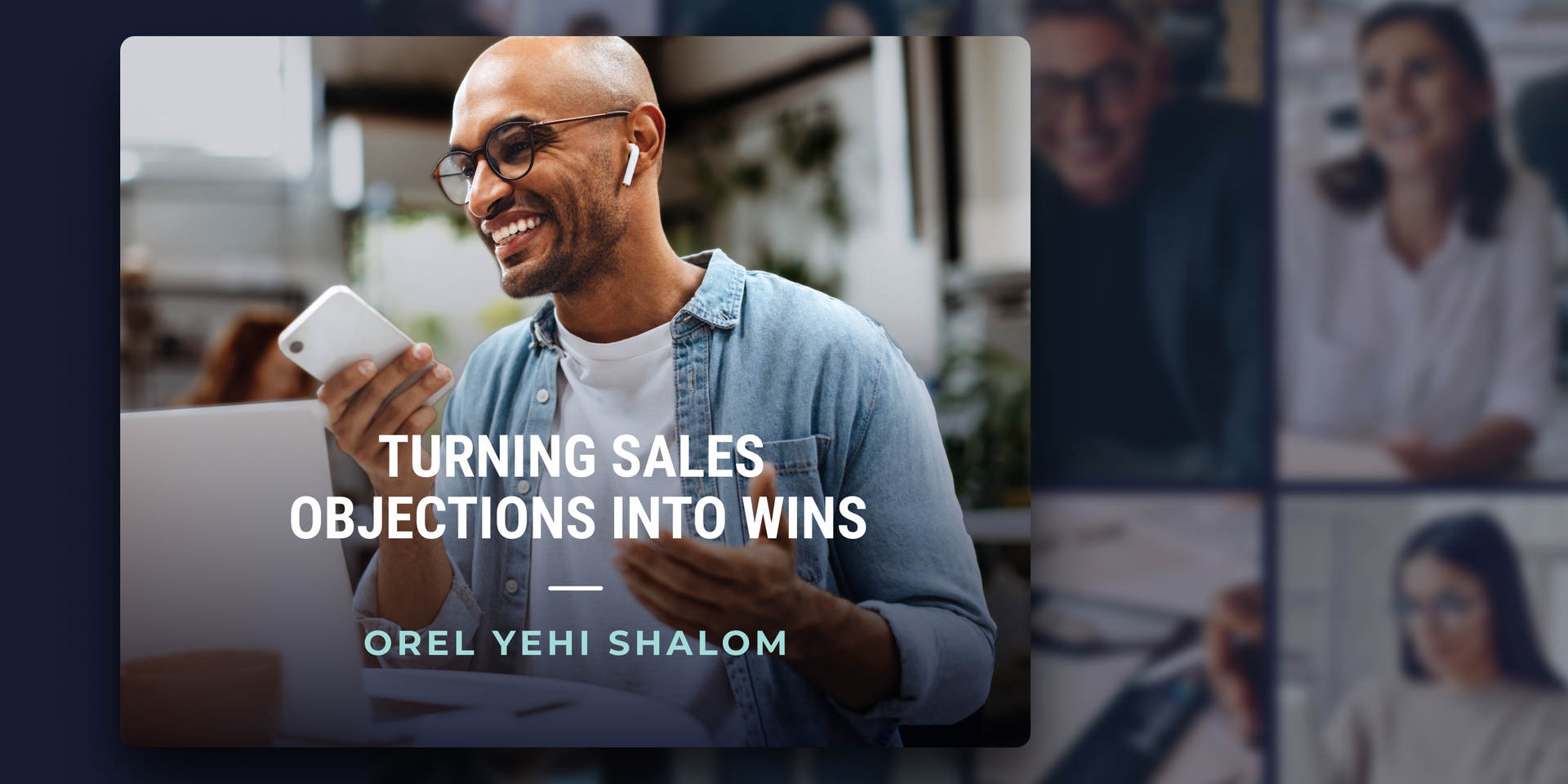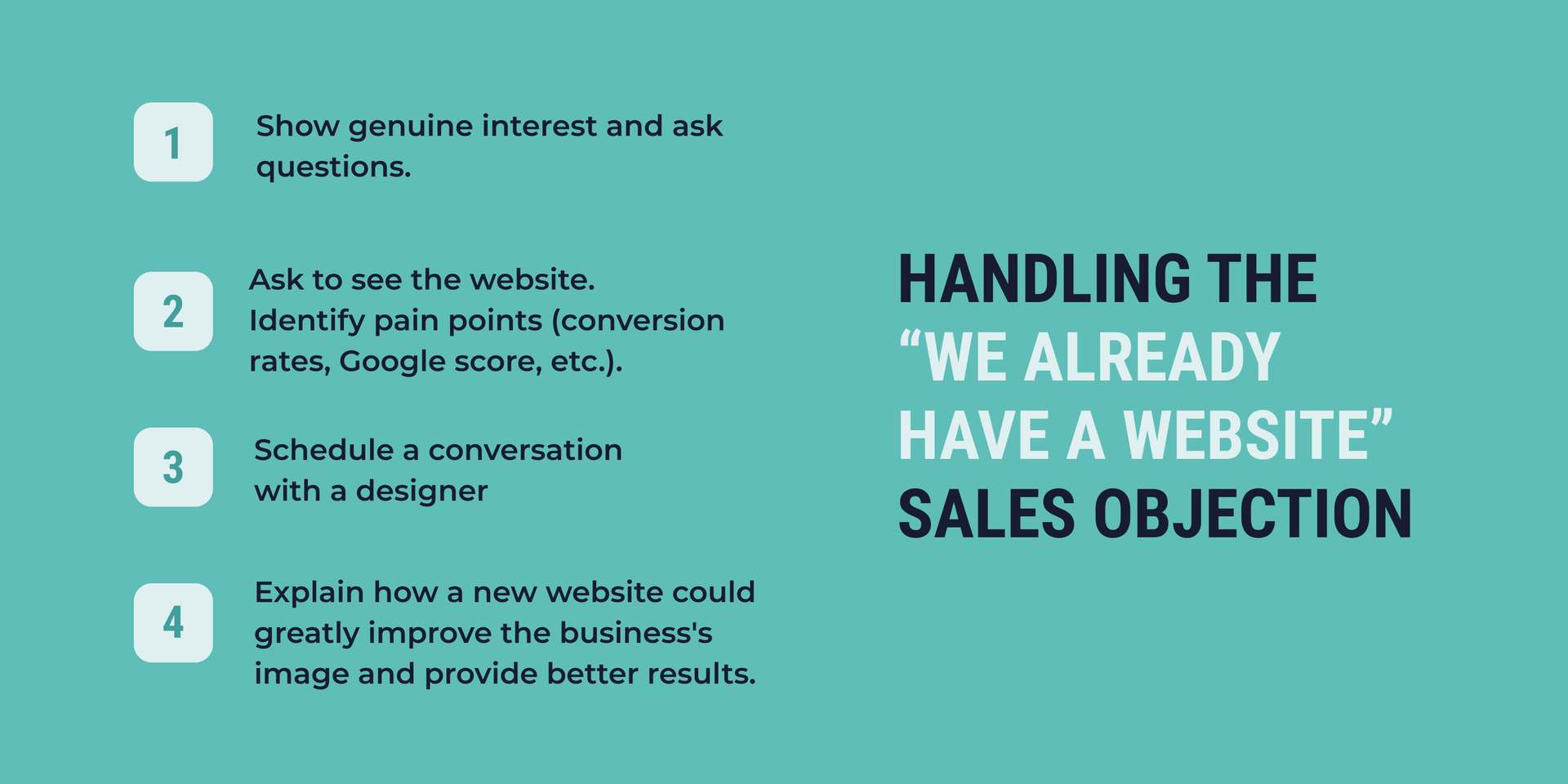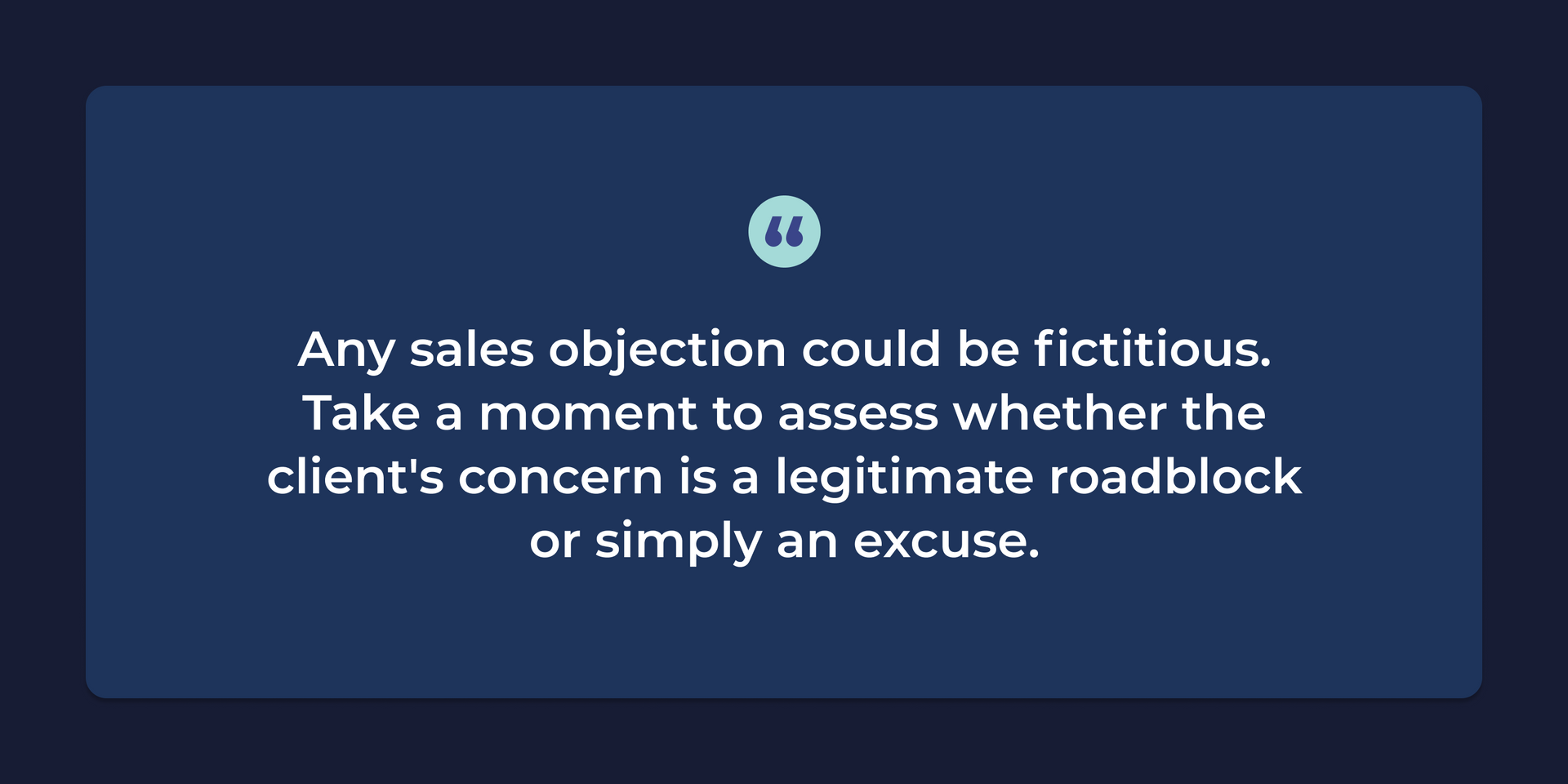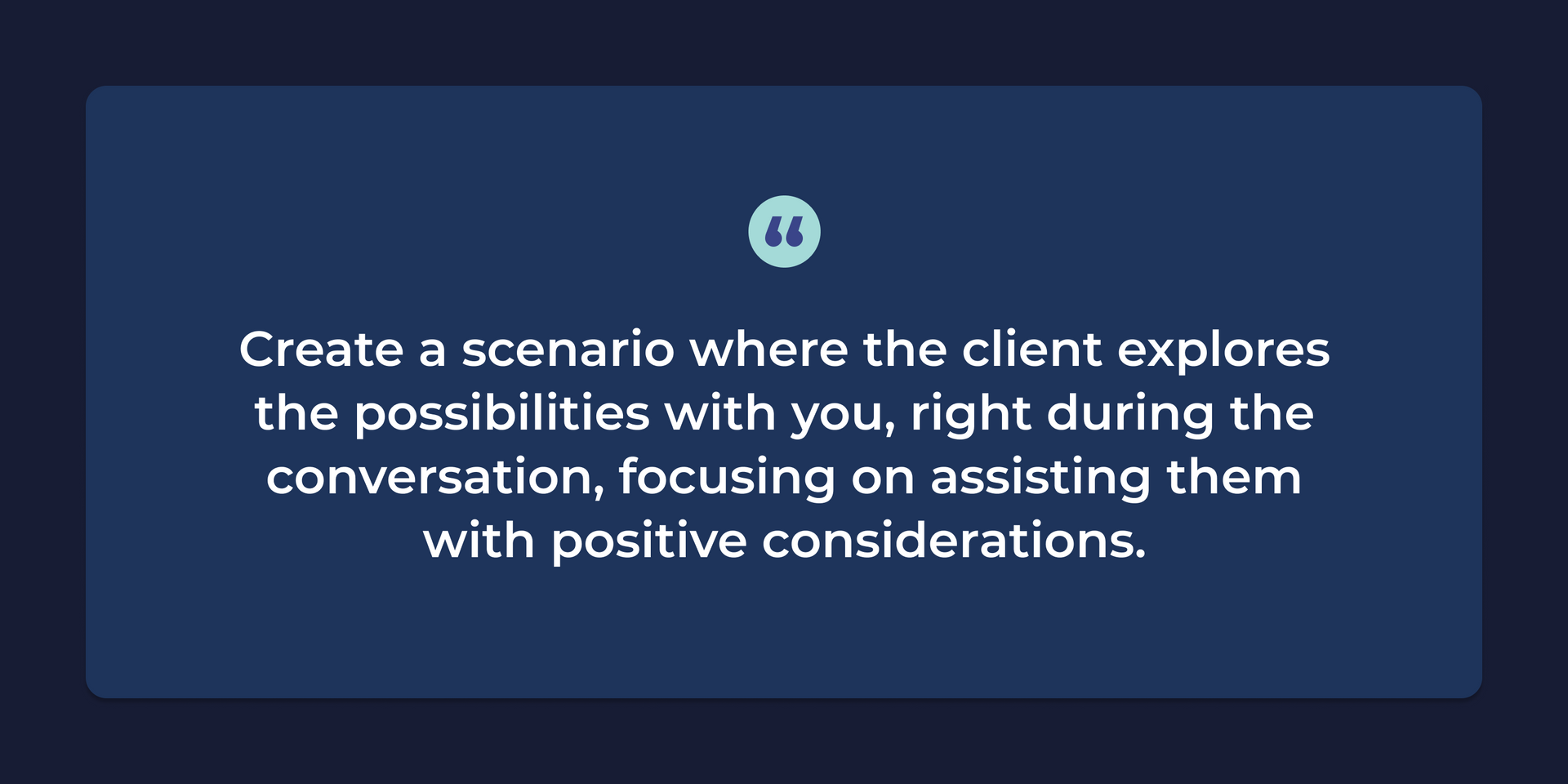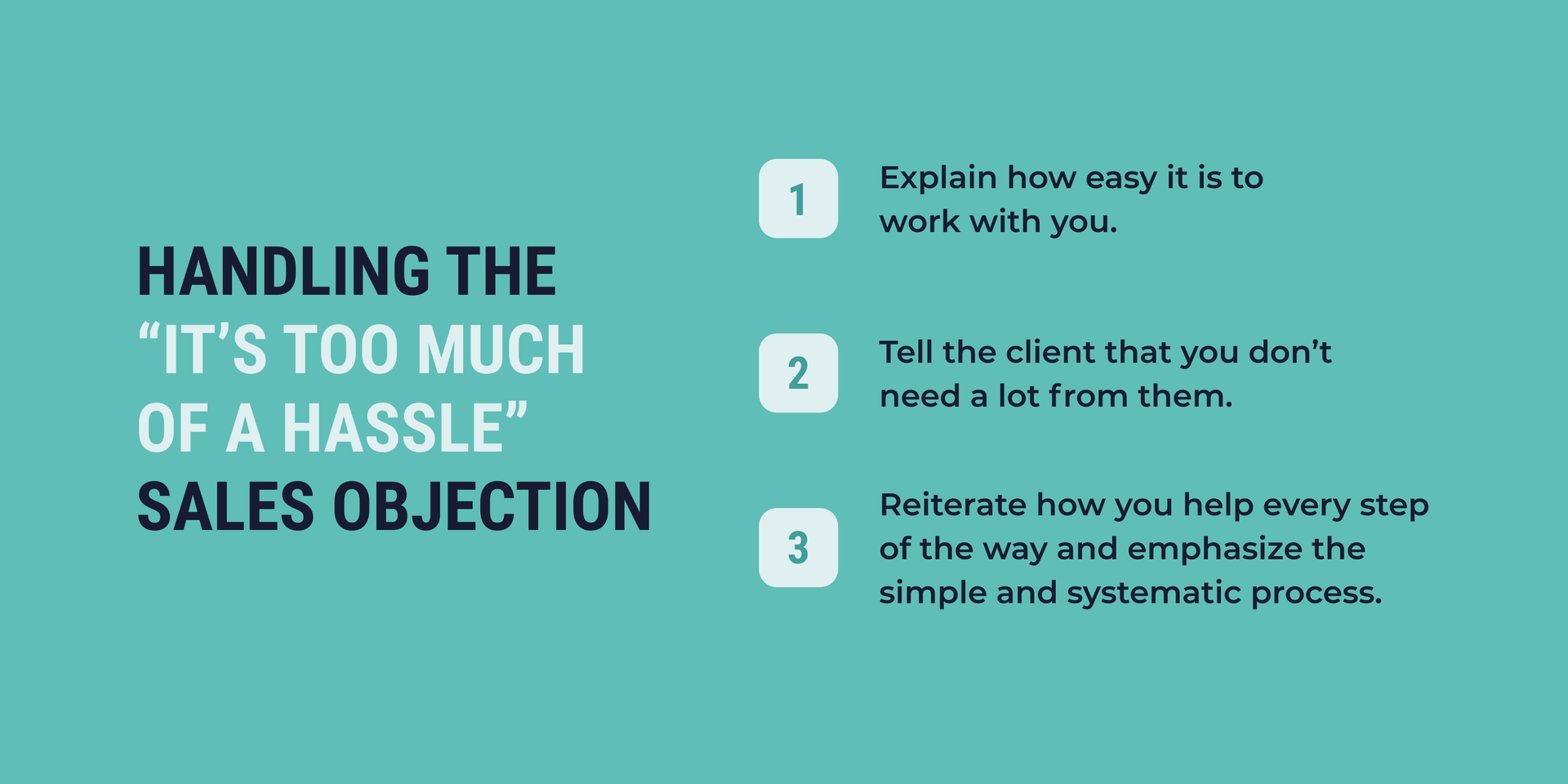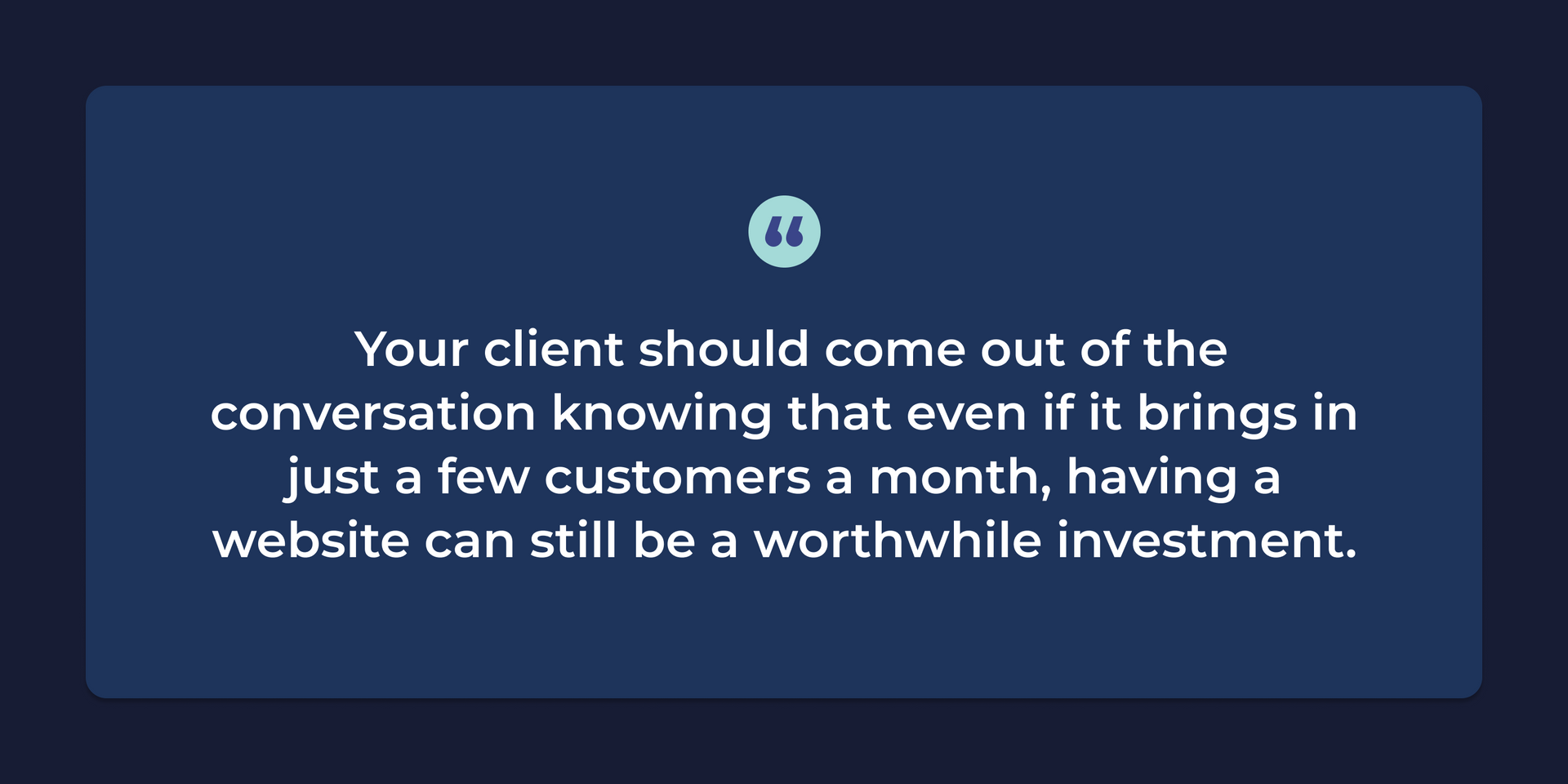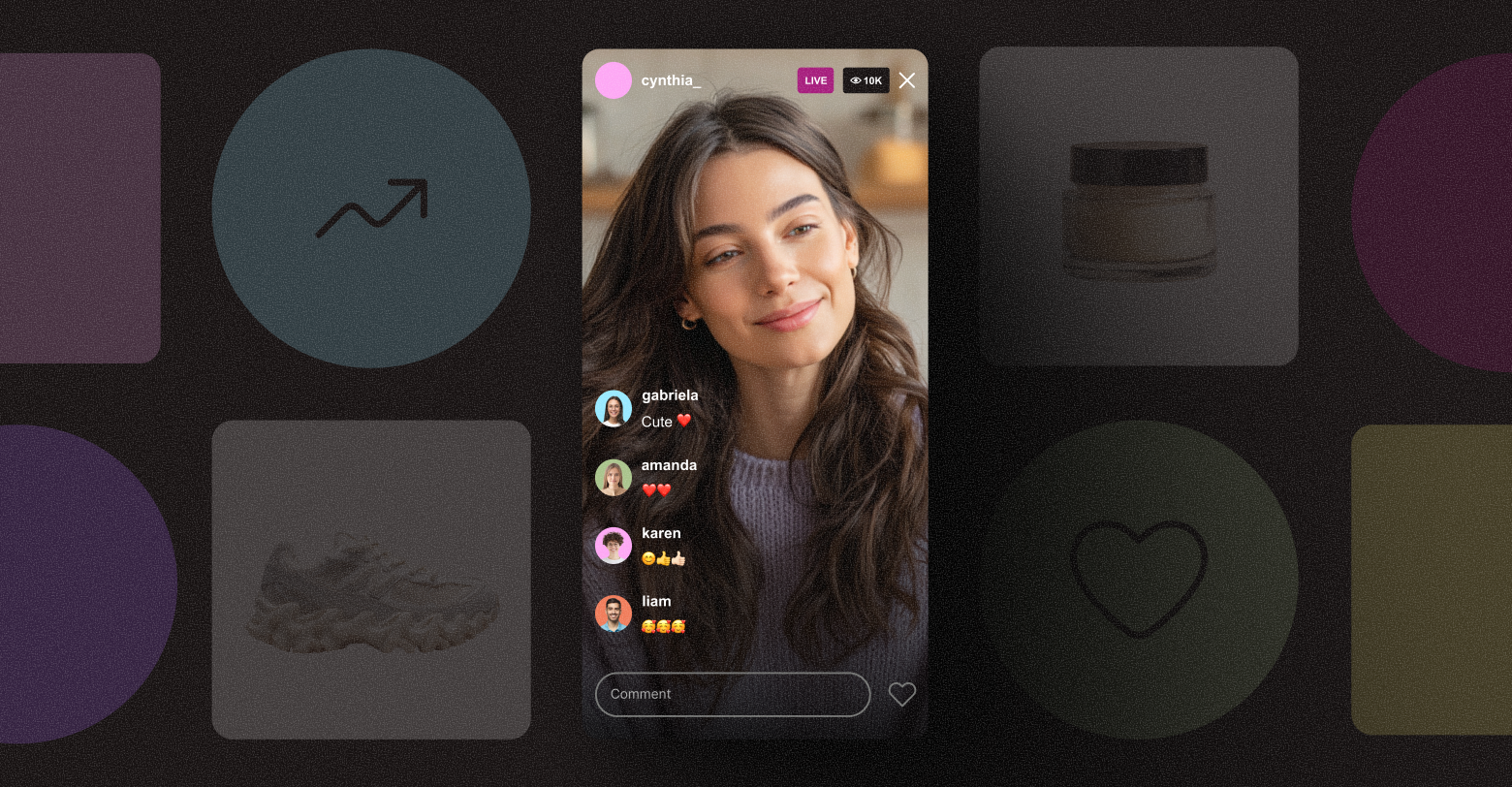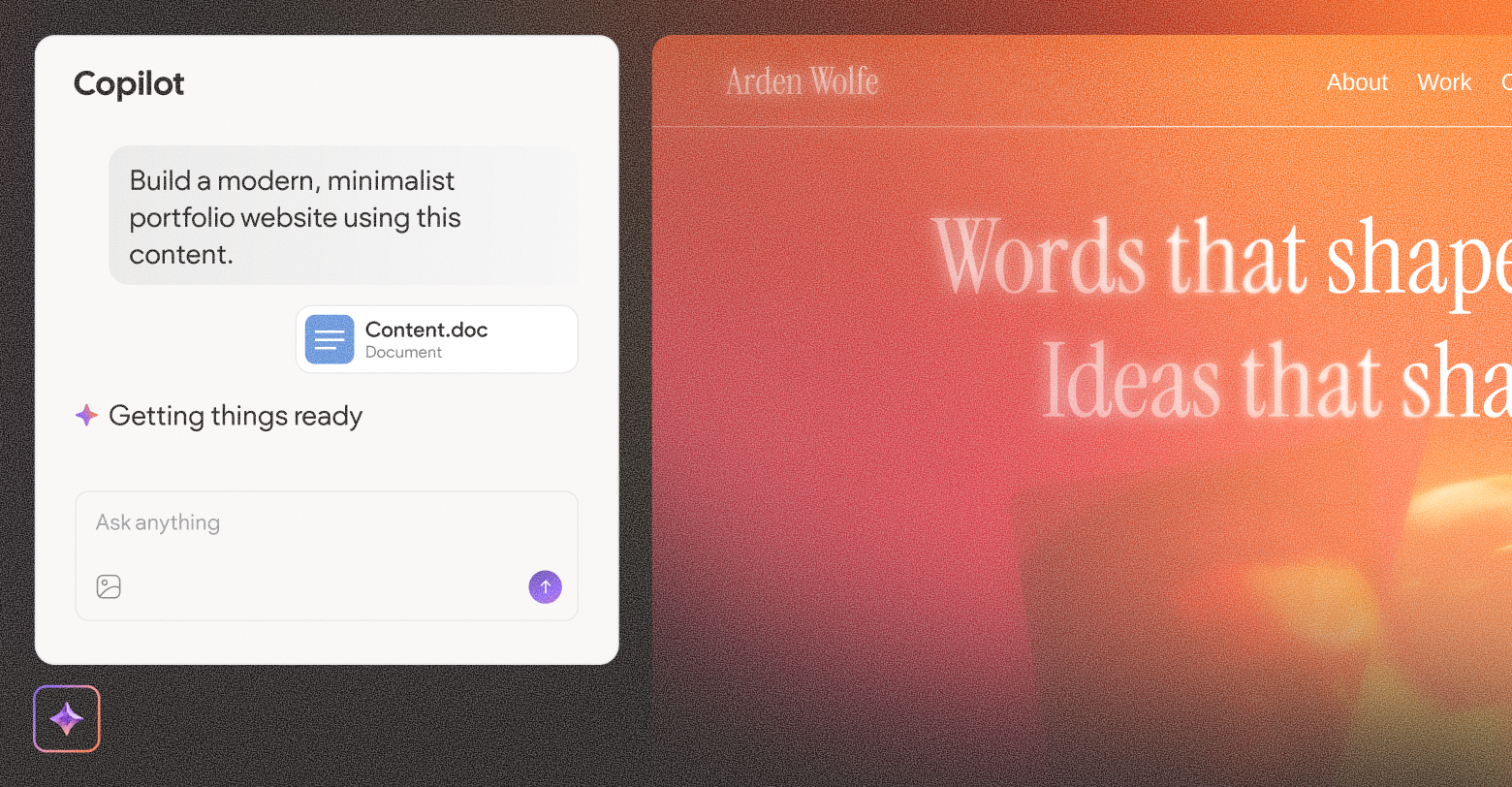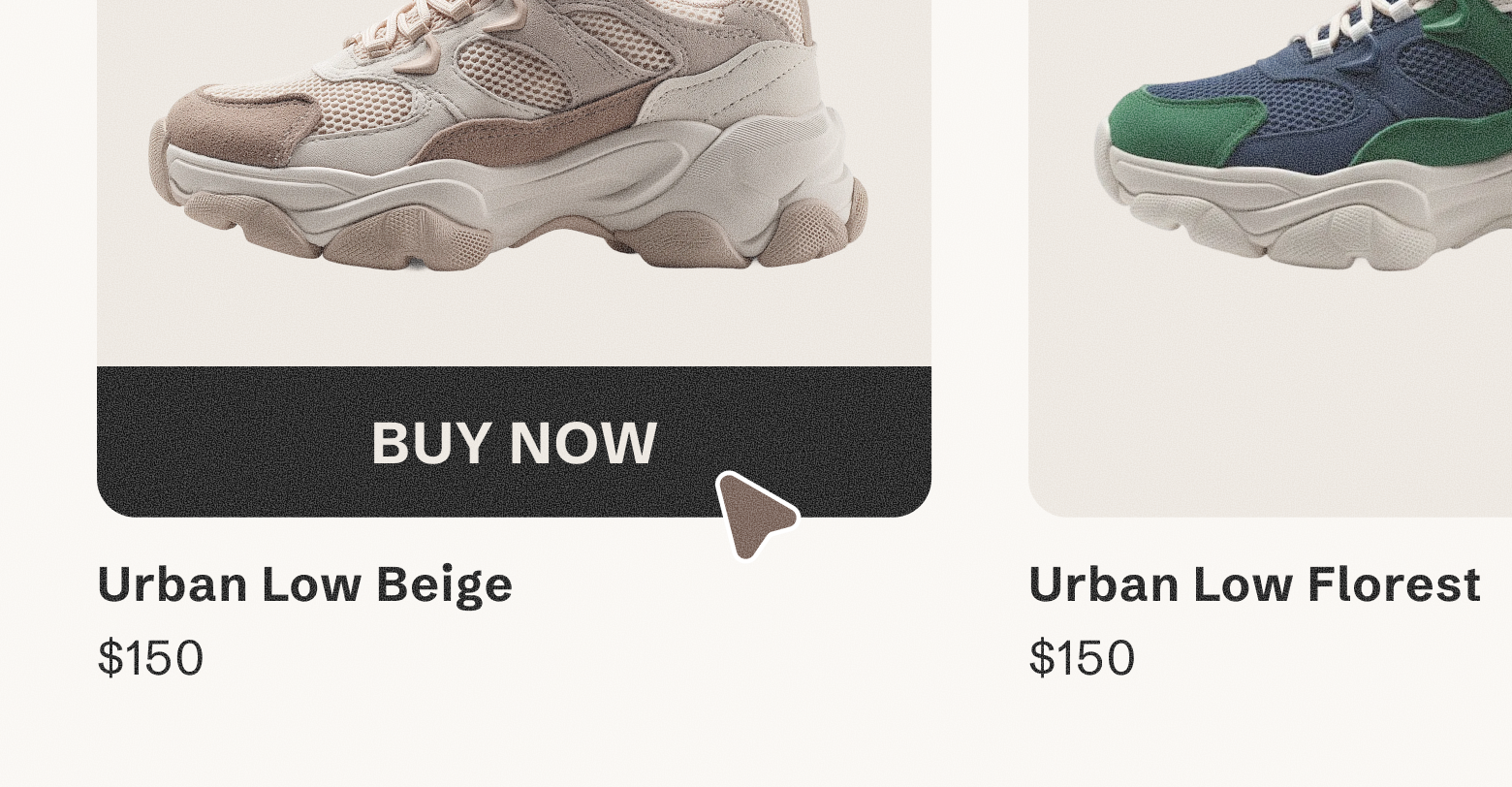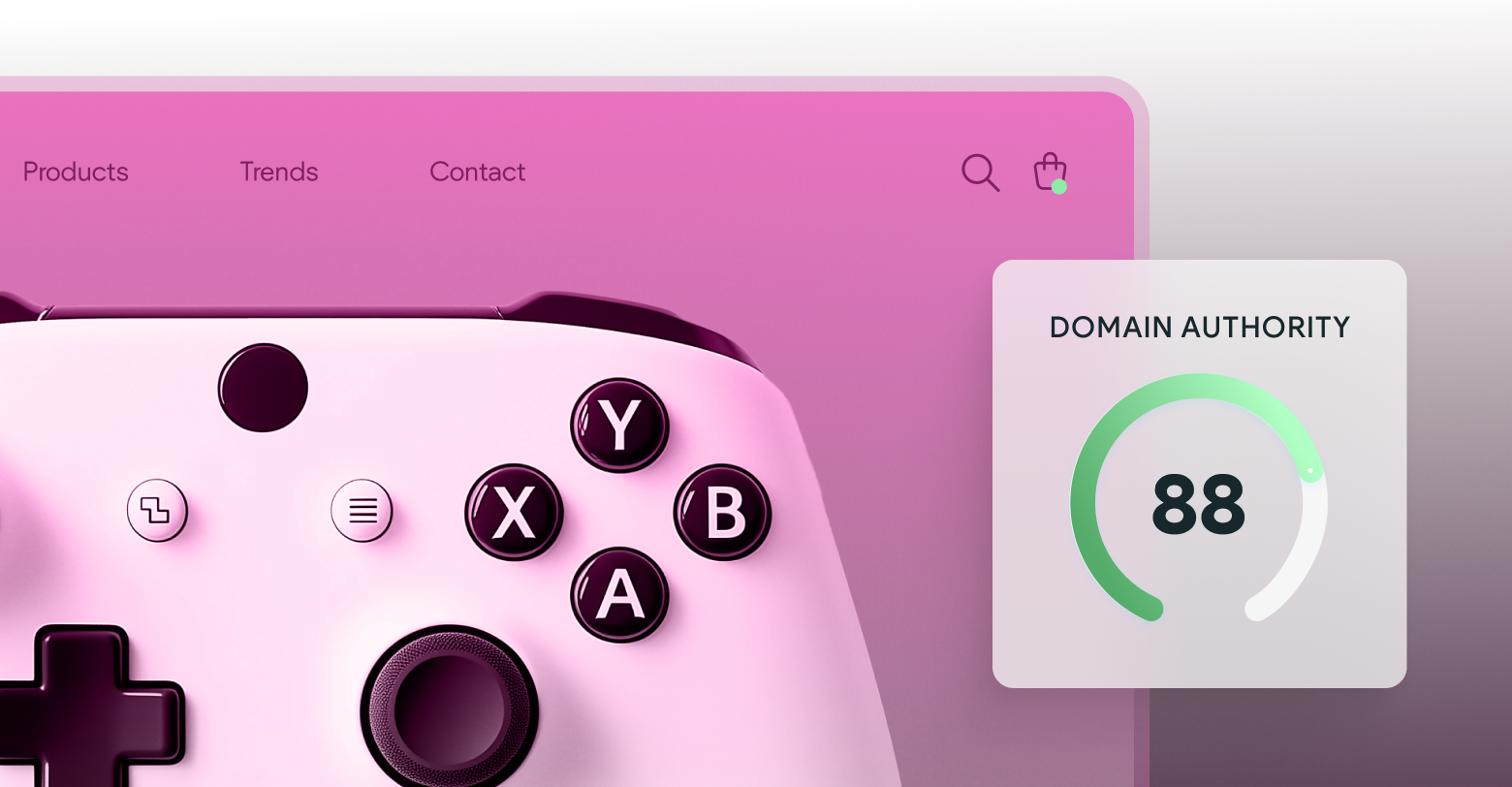In this content series, Scale and Thrive: Growth Insights for Agencies, by Agencies, we share proven tips and insights from agencies who scaled their operation and delivered proven growth. This blog post was written by Orel Y. Shalom, a successful agency owner with over a decade of experience in the field. Over the years, Orel has led more than 70 employees, producing over 10,000 websites for clients in a wide range of verticals.
Sales objections can crop up at any point during the sales process. But fear not, with the right tactics, objections can be reframed as opportunities for
agency success.
I want this blog post to become your agency’s guide for overcoming sales objections. I’ll walk you through multiple sales objection categories and explore customer objections examples relevant for each category.
Let’s dive in!
1) Preliminary Sales Objections
These prevent you from engaging in a meaningful and substantial initial conversation with a lead. That’s why the first few seconds of this conversation with a potential client are crucial. An example of such a sales objection would be:
a) I’m Busy/The Matter is Irrelevant
In such a scenario, respond positively by acknowledging that it's great to hear they have a lot of work, and you don't want to disturb them.
Try something along the lines of: “I completely understand and value your busy schedule, and I want to be mindful of your time. If I could have just 30 seconds of your attention, I'd like to ask a quick question. Out of every 100 customers who visit your website, approximately how many provide their contact details or leave inquiries? Now, imagine the possibility of doubling that number for you. Is that of interest to you?”
Then, try and find the time that’s mutually convenient for everyone.
“If you find yourself still pressed for time, I propose we schedule a conversation at a more convenient moment. I don't want to disturb you further, but I believe this topic is crucial for your business. We can coordinate a time in the diary to discuss it in detail. Once we have a set time, I'll follow up with you, and we can engage in a conversation when you're free to give it your full attention.”
b) We Already Have a Website
In this case, show genuine interest and ask questions. Start by asking to see the website and offering tips for improvement. Then, ask about the website's conversion rate and Google score, and highlight potential problems with user experience or compatibility with Google.
After identifying these pain points, explaining how a new website could greatly improve the business's image and provide better results is imperative. By showing how your agency can address these issues, you can convince the client that a new website is worth considering.
Fictitious Sales Objections
These objections can arise anytime when the client hesitates or avoids revealing the actual reason for not wanting to proceed with the deal. In a sense,
any sales objection could be fictitious. My tip is to take a moment to assess whether the client's concern is a legitimate roadblock or simply an excuse. This will guide your response strategy and help you provide the most suitable solution. Consider asking: If we could reach a consensus on the particular issue, would you be interested in advancing with the deal? I will provide a more detailed explanation further down.
a) It’s too Expensive
It could indicate
a lack of understanding of the product's value, leading to an imbalance in the cost-benefit ratio.
First, I recommend asking the client what they believe a fair price would be. This prompts them to consider their perception of the value and may lead to a more reasonable price expectation.
Then, explain the value of the website or service and acknowledge that the price difference may seem significant, but the value is worth it. Instead of offering a discount, consider offering additional benefits, such as extra content pages, to sweeten the deal and help the client see the value.
If they still object, handle it by asking the client if they would be willing to move forward with the deal if you both agreed on the price. Like I said in the beginning of this section, this can help reveal if cost is the true objection or if there are other underlying concerns that you can address. If the client says yes, you can focus on emphasizing the value and benefits they will receive from your agency’s offering to justify the price.
If the client declines, it implies there are more issues at hand. In response, you can inquire, "Alright, so what's hindering our progress?" This helps you identify the client’s genuine concerns and provide targeted responses using the strategies I’m outlining here.
b) I Need to Discuss with My Business Partner/Spouse
Respond by saying: "I completely understand. If your partner approves, would you be ready to move forward with the project? If so, I'd be happy to get them on this call and help explain the benefits of the website to them in a professional manner. As a [lead’s profession], I'm sure you have great skills in explaining complex matters, so I'll be happy to provide my expertise on the technical aspects of the project. Together, we can make sure that all of your concerns are addressed and that you can make an informed decision about moving forward.
Now, I’ve heard the same sales objection appear later in the funnel, just before you close the deal. Whenever it appears, your strategy for handling it should be the same.
3) Pre-Closing Sales Objections
a) I Need to Think About It
Create a scenario where the client explores the possibilities with you, right during the conversation. Focus on assisting them with positive considerations. Produce a list of “pros” and “cons”. While discussing the “pros”, offer support and highlight the advantages. For “cons”, leave your questions open-ended: "What factors might be holding you back?" This prompts the prospect to reflect on potential obstacles. After a brief pause, skillfully encourage them to move forward, reinforcing their confidence in making the right choice. This approach facilitates a balanced dialogue while ensuring the potential client feels supported throughout the process.
If the client still objects, ask them what is preventing them from moving forward, while providing encouragement and reassurance that this is the right decision. For example, assure them that they will be pleased with the results and that they will be able to see positive outcomes in just a few weeks, or throw in a few concrete statistics.
4) Substantive Sales Objections
a) It’s too Much of a Hassle for Me
I’ve heard so many clients hesitate to close a deal because they lack the expertise or time to handle website building, content creation, and design. The way I like to go about this is:
Acknowledge their pain points and
explain how easy it is to work with you. - Tell them that you don’t need a lot: a few lines of text, a few images, their business logo, and contact details. By the way, make sure the client knows that the remaining images can be sourced from an image bank or generated using artificial intelligence tools, saving time and effort.
- Reiterate how you help every step of the way and emphasize the simple and systematic process where they need to send you only a few materials, but most importantly, contact details. The ultimate goal is to
shift their focus to generating leads from their website. Note that requesting the client's contact information can prompt them to consider lead generation.
If they still insist on the lack of time to write, let the potential client know they can write a short outline and use artificial intelligence to expand their work. You can also offer an alternative for a small additional feel where your agency arranges for professional content writing services.
b) Who Said a Website Will Drive Clients
In this case, communicate to your potential client that
the purpose of having a website goes beyond client generation; it’s more about establishing a strong image for their business, which can attract more customers and increase the likelihood of conversions.
It can also help with word of mouth advertising and attract customers from search engines and social media. Your client should come out of the conversation knowing that even if it brings in just a few customers a month, having a website can still be a worthwhile investment.
c) Customers Come to Us Through Word-of-Mouth
Use the mirroring and inversion technique (read one of
my previous blog posts for details) by acknowledging the effectiveness of word of mouth advertising but also pointing out that not having a website may be costing them 80% of potential customers, as 8 out of 10 people use search engines to find businesses. By creating a new website, the client can potentially increase their customer base by a significant percentage, as word of mouth advertising will be amplified.
Final Thoughts
Now that you have a good grasp of sales objection categories and can provide a few sales objection examples, let's now dive even deeper into website building. In my next blog, I’ll explore additional specific sales objections that are frequently encountered in this sector.
Related Posts
By María Vincenzini
•
February 17, 2026
Compare leading tools like Aspire, Influencer Hero, Upfluence, Traackr, and CreatorIQ. See how top platforms help agencies and brands streamline creator outreach, manage campaigns at scale, track affiliates, and prove ROI with real performance data.
By Amy Greene
•
February 12, 2026
AI tools offer speed, but only solid systems deliver true agency scale and profit. Learn the three pillars for integrating AI into a structured, high-growth framework.
By Stephen Alemar
•
February 10, 2026
Discover the best eCommerce solution for your SMB clients Learn key criteria and compare platforms like Duda, Shopify, and BigCommerce to find the right-sized fit.
Show More



